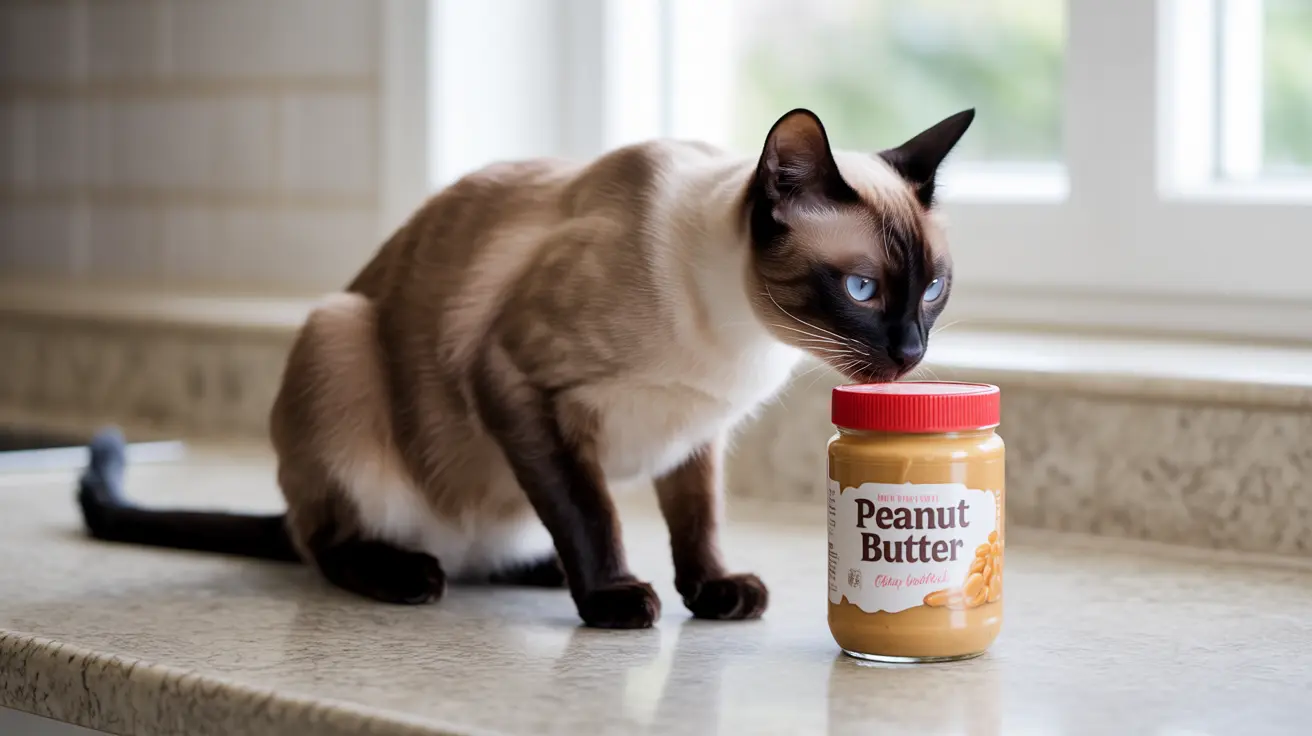As a responsible cat owner, you might wonder about sharing human foods with your feline friend. Peanut butter, a pantry staple for many, is particularly intriguing. While it might seem like a harmless treat, the reality is far more complex when it comes to cats' dietary needs and health.
Understanding the potential risks and nutritional implications of peanut butter is crucial for maintaining your cat's well-being. This comprehensive guide will explore why peanut butter is not an ideal food for cats and what you need to know to keep your furry companion safe and healthy.
Nutritional Limitations for Cats
Cats are obligate carnivores, which means their bodies are specifically designed to derive nutrition primarily from meat-based proteins. Unlike humans, cats have a unique digestive system that cannot efficiently process plant-based foods like peanuts. Peanut butter offers nothing more than 'empty calories' that provide zero nutritional value for your feline companion.
Why Cats Don't Need Peanut Butter
Their evolutionary diet consists of high-protein, low-carbohydrate foods. Peanut butter's composition—high in fats, sugars, and plant proteins—is fundamentally misaligned with a cat's dietary requirements. Every spoonful of peanut butter represents unnecessary calories that could potentially harm your cat's health and weight management.
Potential Health Risks of Peanut Butter
Beyond its lack of nutritional benefits, peanut butter poses several significant health risks for cats. The thick, sticky consistency creates potential choking hazards, while its caloric density can contribute to rapid weight gain and associated health problems.
Digestive Complications
Most cats experience gastrointestinal distress when consuming peanut butter. Symptoms can include vomiting, diarrhea, excessive gas, and abdominal pain. These reactions stem from cats' limited ability to digest complex, non-meat substances.
Dangerous Ingredients to Watch
Not all peanut butter is created equal—and some variations can be extremely dangerous. Xylitol, an artificial sweetener found in some brands, is highly toxic to cats and can cause rapid insulin release, potentially leading to liver failure.
Allergic Reactions and Toxin Concerns
Just like humans, cats can develop allergic reactions to peanuts. These reactions range from mild skin irritations to severe, life-threatening anaphylaxis. Additionally, peanut butter can sometimes be contaminated with aflatoxins—mycotoxins that may cause liver damage and potentially increase cancer risks.
Special Health Considerations
Cats with pre-existing conditions like diabetes, kidney problems, or chronic digestive issues should never consume peanut butter. The additional stress on their metabolic systems could exacerbate existing health challenges.
Safe Alternatives for Treating Your Cat
Instead of risking your cat's health with peanut butter, consider species-appropriate treats that align with their nutritional needs. Lean meats, specifically formulated cat treats, or small portions of cooked chicken can provide both nutrition and enjoyment.
Frequently Asked Questions
Can cats safely eat peanut butter, and how much is okay?
No amount of peanut butter is truly safe or recommended for cats. While tiny amounts might not cause immediate harm, the potential risks far outweigh any perceived benefits.
What health risks does peanut butter pose to cats?
Potential risks include choking, digestive issues, allergic reactions, weight gain, and exposure to toxic ingredients like xylitol.
Why is peanut butter not a good nutritional choice for cats?
Cats are obligate carnivores requiring meat-based proteins. Peanut butter provides empty calories and lacks essential nutrients cats need for optimal health.
What ingredients in peanut butter should cat owners avoid, such as xylitol?
Xylitol is the most dangerous ingredient, but owners should also be cautious of high salt content, artificial sweeteners, and preservatives.
How can peanut butter cause choking or allergic reactions in cats?
Peanut butter's thick, sticky texture can obstruct a cat's throat, while its protein composition can trigger allergic responses ranging from mild skin irritation to severe anaphylaxis.
In conclusion, while your cat might show curiosity towards peanut butter, it's best to resist the temptation. Prioritize their health by offering nutritionally appropriate, species-specific foods that support their unique dietary needs.






